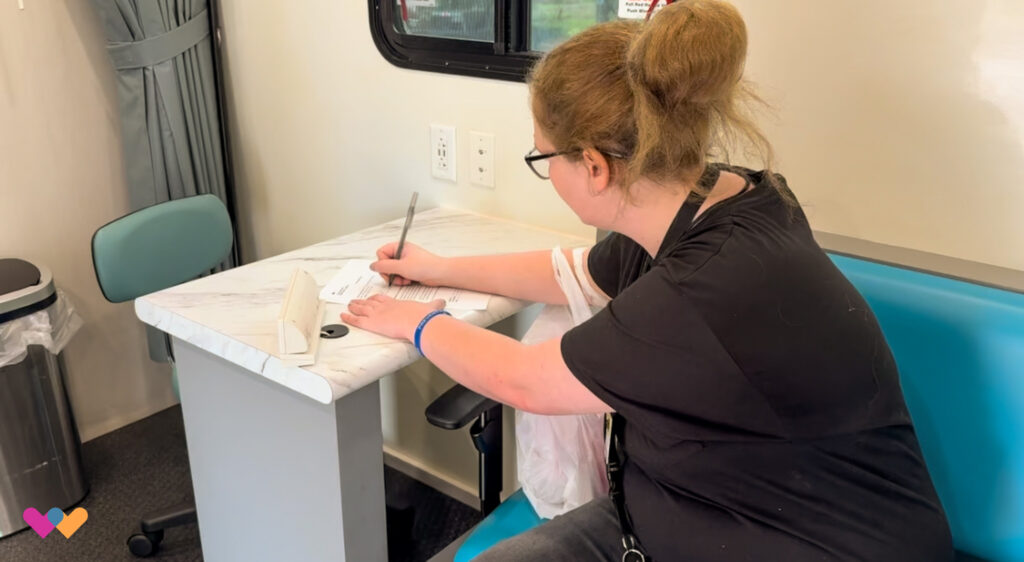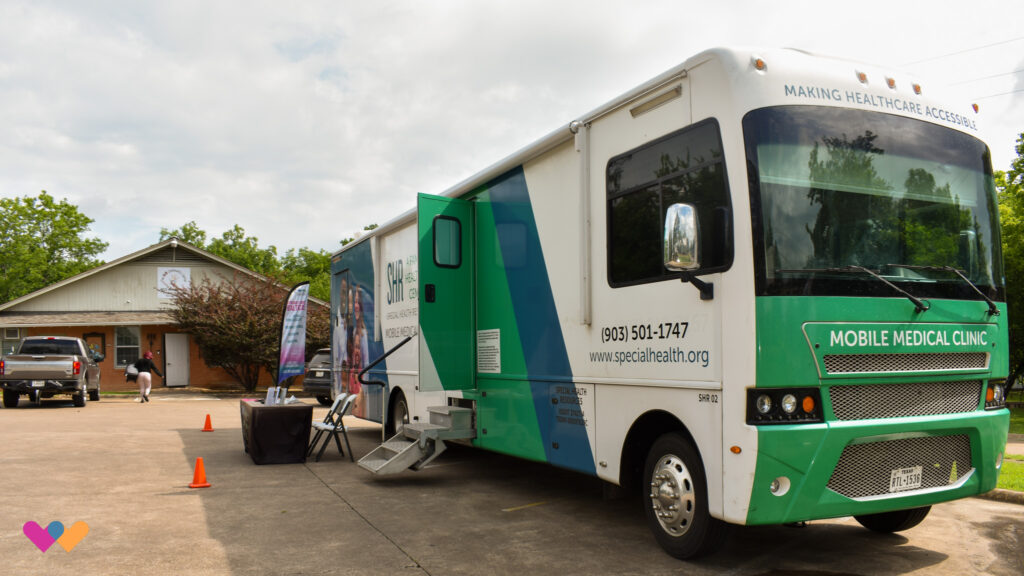Recently, the Texas Women’s Healthcare Coalition (TWHC) joined one of our members, Special Health Resources for Texas– Woman & Child Health Center of Longview, to see their Women’s Health on Wheels (WHOW) provided services in Red River County– a community where women face some of the steepest barriers to care. Red River is one of the many counties in Texas classified as a contraceptive desert, with more than 153,00 women statewide living in counties without a single clinic that provides the full range of contraceptive options.
Care Close to Home
We rode along with WHOW’s mobile unit from Longview to Clarksville, where the team parked outside the HUB Community Center. Inside the bright, fully equipped unit, Women’s Health Nurse Practitioner Leigh Ann Klein described what makes this work so vital:
- Women who haven’t had a Pap smear in 6-10 years can access preventive care in their own community.
- Patients can access birth control and education without missing hours of school for a long trip
- Mothers with small children can walk up to their unit for care, often after stopping by the HUB for diapers, food, or other necessities.
As Leigh Ann shared, “We offer everything from condoms to implants to access to permanent birth control. We can make sure every woman has options– and we’ll find a way to cover the cost if she can’t.”
The Real Impact

One of those patients is Shelby, who came to WHOW to learn about birth control. She left not only with answers and access to the best method for her, but also with referrals that led to surgeries she had been struggling to secure.
“By the time I left, I felt completely comfortable and educated,” Shelby told us. “Now I know I have the option to come here instead of driving an hour out. For our community, where we already struggle financially, this makes all the difference.”
Partnership at the Heart
The success of mobile healthcare doesn’t happen in isolation. At the HUB Community Center, we spoke with Executive Director Catana Yarnell, who emphasized how critical local partnerships are to the work. Community centers like hers serve as trusted hubs, connecting residents to resources and linking patients to WHOW’s services. These partnerships are what make it possible for mobile clinics to build trust and reach the women who need care most.

Advocacy in Action
Stories like Shelby’s underscore why advocacy matters. During the 89th Legislative Session, TWHC and partners secured $20 million in new state funding to expand mobile women’s health units in North and West Texas – doubling down on the commitment to women where they are. This investment represents $10 million more than in 2023 and shows the power of collective advocacy to create real impact.
But the need is still great. An estimated 1.75 million women in Texas live in contraceptive deserts. TWHC remains committed to increasing funding for women’s preventive healthcare– including contraception– to fully meet the growing needs of low-income, uninsured women across the state.
At its heart, Women’s Health on Wheels is about more than healthcare– it’s about access and dignity. It proves that healthcare shouldn’t depend on your zip code. And it reminds us that with the right resources, partnerships, and advocacy, we can bring care closer to home for every woman in Texas.
Want to learn more about our big wins this past legislative session? Click below to read our newest report.
89th legislative report